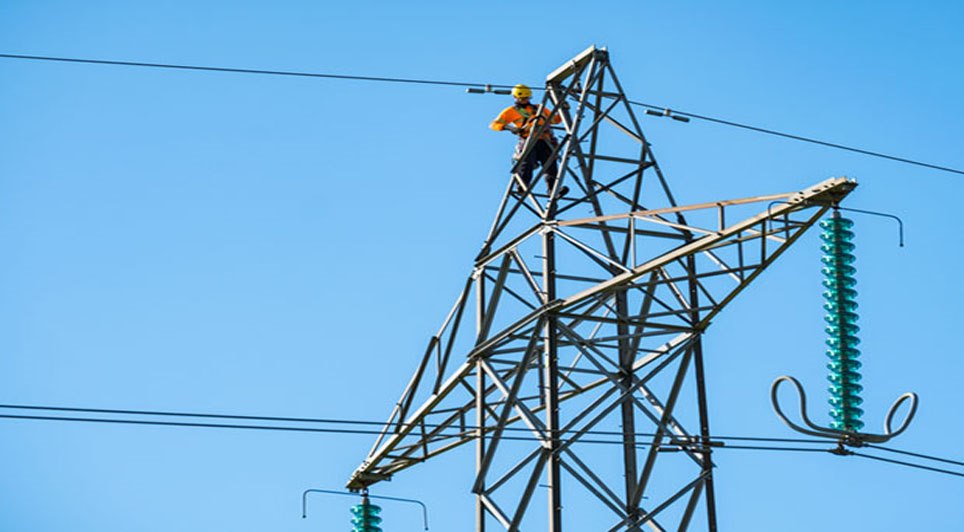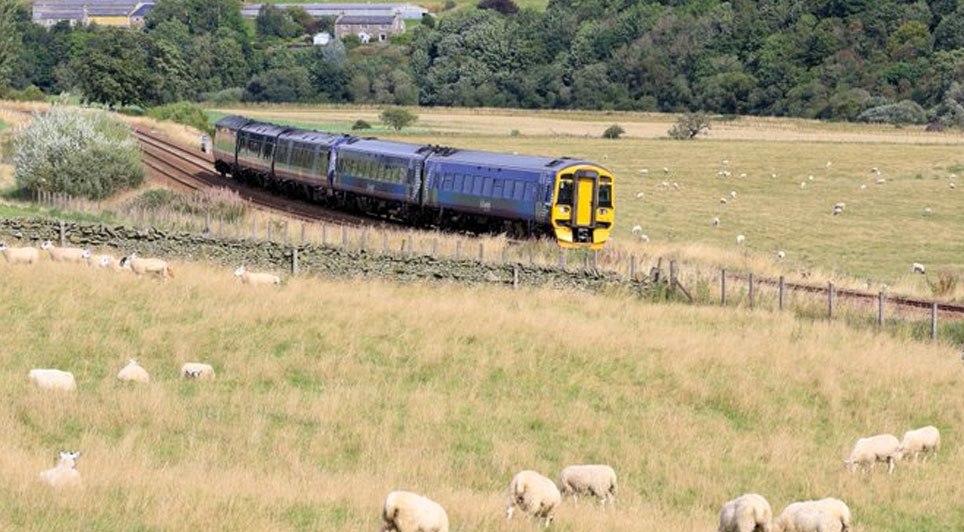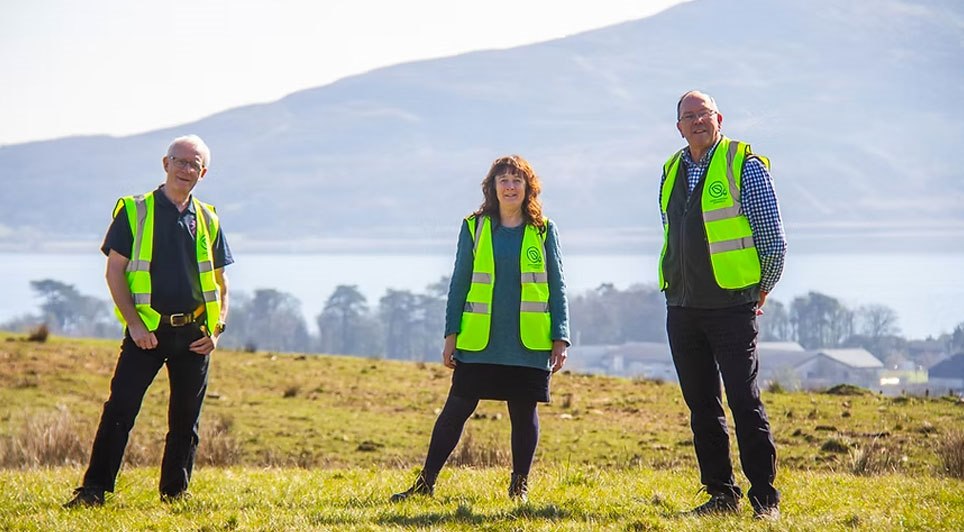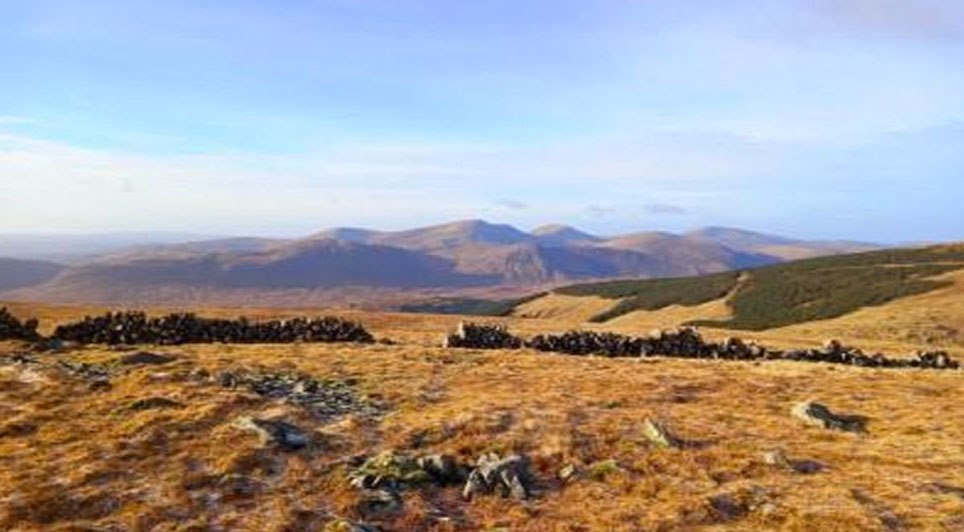North East Scotland and the Humber have been announced as the chosen locations for two new carbon capture usage and storage clusters, as the UK government to building a thriving clean industry in the North Sea which could support up to 50,000 jobs
The Government and the North Sea Transition Authority (NSTA) has announced a joint commitment to undertake future licensing rounds, which will continue to be subject to a climate compatibility test.
By adopting a more flexible application process, licences could also be offered near to currently licensed areas – unlocking vital reserves which can be brought online faster due to existing infrastructure and previous relevant assessments.
With the independent Climate Change Committee predicting around a quarter of the UK's energy demand will still be met by oil and gas when the UK reaches net zero in 2050, the Government is taking steps to slow the rapid decline in domestic production of oil and gas, which will secure our domestic energy supply and reduce reliance on hostile states.
This will increase the UK's energy security and reduce dependence on higher-emission imports, whilst protecting more than 200,000 jobs in a vital industry as we grow the UK economy. As part of a visit to a critical energy infrastructure site in Aberdeenshire, the Prime Minister will highlight the central role the region will play in strengthening the UK's energy independence and meet the next generation of skilled apprentices key to driving this work forward.
The NSTA – responsible for regulating the oil, gas and carbon storage industries – is currently running the 33rd offshore oil and gas licensing round. They expect the first of the new licences to be awarded in the autumn, with the round expected to award over 100 licences in total.
Future licences will be critical to providing energy security options, unlocking carbon capture usage and storage and hydrogen opportunities – building truly integrated offshore energy hubs that make the best use of the established infrastructure.
This comes as new analysis released by the NSTA today shows that the carbon footprint of domestic gas production is around one-quarter of the carbon footprint of imported liquified natural gas. As the UK is a rapidly declining producer of oil and gas, new oil and gas licences reduce the fall in UK supply in order to ensure vital energy security, rather than increase it above current levels – so that the UK remains on track to meet net zero by 2050.
UK Prime Minister Rishi Sunak said: "We have all witnessed how Putin has manipulated and weaponised energy – disrupting supply and stalling growth in countries around the world.
"Now more than ever, it's vital that we bolster our energy security and capitalise on that independence to deliver more affordable, clean energy to British homes and businesses.
"Even when we've reached net zero in 2050, a quarter of our energy needs will come from oil and gas. But there are those who would rather that it come from hostile states than from the supplies we have here at home.
"We're choosing to power up Britain from Britain and invest in crucial industries such as carbon capture and storage, rather than depend on more carbon intensive gas imports from overseas – which will support thousands of skilled jobs, unlock further opportunities for green technologies and grow the economy."
The UK's oil and gas industry are also vital to driving forward and investing in clean technologies that we need to realise our net zero target, like carbon capture usage and storage, by drawing from the sector's existing supply chains, expertise and key skills whilst protecting jobs.
The Government has confirmed that projects Acorn in North East Scotland and Viking in the Humber have been chosen as the third and fourth carbon capture usage and storage clusters in the UK.
The Government has already committed to deploy CCUS in two industrial clusters by the mid-2020s – the HyNet cluster in North West England and North Wales, and the East Coast Cluster in the Teesside and Humber – and another further two clusters by 2030 – now confirmed as Acorn and Viking.
Together, these four clusters will build a new thriving carbon capture usage and storage industry, which could support up to 50,000 jobs in the UK by 2030.
The UK has one of the largest potential carbon dioxide storage capacities in Europe, making the North Sea one of the most attractive business environments for CCUS technology. The Government has committed to provide up to £20 billion in funding for early deployment of CCUS, unlocking private investment and job creation.
Energy Security Secretary Grant Shapps said: "In the wake of Putin's barbaric invasion of Ukraine, our energy security is more important than ever. The North Sea is at the heart of our plan to power up Britain from Britain so that tyrants like Putin can never again use energy as a weapon to blackmail us.
"Today's commitment to power ahead with new oil and gas licences will drive forward our energy independence and our economy for generations. Protecting critical jobs in every region of the UK, safeguarding energy bills for British families and providing a homegrown fuel for our economy that, for domestic gas production, has around one-quarter the carbon footprint of imported liquified natural gas.
"Our next steps to develop carbon capture and storage, in Scotland and the Humber, will also help to build a thriving new industry for our North Sea that could support as many as 50,000 jobs, as we deliver on our priority of growing the economy."
The Prime Minister has also tasked the relevant Government departments and regulators to work collaboratively and report back by the end of the year on how we can make the best use of our offshore resources in a truly integrated way as we unlock CCUS and hydrogen opportunities in the North Sea.
A call for evidence has also been launched by Government, seeking views on the evolving context for taxes for the oil and gas sector to design a long-term fiscal regime which delivers predictability and certainty, supports investment, protects jobs and the country's energy security.
Will Gardiner, Drax Group CEO, said: "We welcome the Government's decision to designate Viking as a Track 2 carbon capture utilisation and storage cluster (CCUS). Progressing a CO2 transport and storage network in the Humber represents a significant step toward helping the region meet its Net Zero ambitions and ensuring that it remains a source of high-skilled jobs and energy security for decades to come.
"The announcement shows the importance of CCUS to the Humber and, along with the East Coast Cluster, creates an additional pathway to support our plans for bioenergy with carbon capture and storage (BECCS) at Drax Power Station. We are currently engaged in formal discussions with the UK Government on this project and hope to invest billions in its development and deploy this critical, carbon removals technology by 2030."
Dr Nick Cooper, CEO of Acorn lead developer Storegga, said:
"We are thrilled that the Acorn Project has advanced directly into Track-2. Acorn has been progressed by the development partners as the Track-1 reserve since late 2021 and is ready to move promptly to support the decarbonisation of Scotland and the wider UK.
"Today's news is a defining milestone for us, and the Scottish Cluster. Acorn will be a major contributor towards meeting the UK and Scotland's carbon reduction targets, able to serve emitters connected by pipeline and ship.
"As Lead Developer, Storegga thanks Acorn partners and Scottish Cluster participants for their support and we look forward to working with Government to deliver the multiple benefits of creating and future-proofing jobs, bringing inward economic investment, developing green-tech industries and, crucially helping decarbonise Scotland and the UK."
Harbour Energy's Executive Vice President of Net Zero and CCS Steve Cox said: "The successful award of Track 2 status to Harbour's Viking CCS project in the Humber as well as Acorn in northeast Scotland is another demonstration of how we are well positioned to use our existing skills and infrastructure to help develop the burgeoning CCS industry in the UK.
"More widely, the announcement today shows the key role the North Sea oil and gas sector will play in helping to deliver the UK's carbon capture goals."
Ruth Herbert, Chief Executive at the CCSA, said: "We are pleased to see the UK Government pushing ahead with its CCUS deployment programme and selecting the next two CCUS clusters, as time is running out to meet 2030 targets. This CO2 infrastructure is critical to safeguarding the UK's supply chain security, enabling local industries to continue to thrive whilst reducing their emissions as we transition to a net zero economy.
"It is therefore vital that the Government urgently sets out clarity on the process and timeline for selecting carbon capture sites within these ‘Track-2' clusters and within the previously announced Track-1 cluster expansion. Billions of pounds of investment is waiting to be deployed to decarbonise these industrial regions, but firm plans are required to secure it.
"There are a number of other clusters under development across the country, which is why last year we asked government for visibility of the longer-term CCUS deployment plan. Collectively, CCUS clusters could protect 77,000 current jobs and create a further 70,000 jobs across the UK. Government's forthcoming vision for the UK CCUS sector needs to be published as soon as possible, to avoid investment flight in those regions that have not been selected today."
Alistair Phillips-Davies, Chief Executive of SSE, said: "Carbon capture will play a critical role not only in decarbonising the UK's power system but also in unlocking economic growth and boosting our energy security, and today's announcement marks a major step forward in its deployment. We know how important it is that the north-east of Scotland and Humber are decarbonised and the decision to support the Scottish Cluster and Viking Cluster shows that there is commitment to doing so.
"Time remains of the essence. Now, we must move quickly to deploy the transport and storage infrastructure which will underpin the rollout of CCS across the chosen clusters. Doing so will allow crucial low-carbon projects – such as our carbon capture project at Peterhead - to be brought forward, supporting the energy transition while providing good, green jobs and enhancing regional economies. The UK has a real opportunity to lead the world on carbon capture if we can accelerate progress and today's announcement provides welcome impetus."
Construction News
31/07/2023
Acorn And Viking Chosen For New Carbon Capture Scheme


15/04/2025
Construction of a £70 million student accommodation development at 292-298 St Vincent Street in Glasgow has reached a significant milestone, with the building now visibly rising from the ground.
Drone footage has captured the progress of the project, which is a partnership between developer Artisa

15/04/2025
Energy regulator Ofgem is expected to confirm today (April 15) its finalised Connections Reform process, designed to expedite grid connections for renewable energy projects that are ready and crucial for achieving the UK's clean power targets for 2030 and beyond.
The new connections system, anticip

15/04/2025
The ambitious transformation of Glasgow’s landmark George Square has moved into a tangible phase with the commencement of the erection of hoardings around the perimeter of the civic space. Starting today, the hoardings will enclose the Square for the duration of its 18-month redevelopment.
The pane

15/04/2025
Members of the public are invited to attend a consultation feedback event to discuss the proposed infrastructure associated with a new underground electricity transmission cable between the Kinardochy and Errochty substations in Perthshire.
The event will take place on Monday, 28 April, from 4 pm t

15/04/2025
Turner & Townsend have been appointed as project managers to develop a business case for the potential extension of the Borders Railway beyond its current terminus at Tweedbank to Hawick and Carlisle.
This key appointment will enable crucial work to progress on the project, including feasibility s

15/04/2025
Arran Community Renewables, a Community Benefit Society based on the Isle of Arran, has secured planning consent for a 6 MW solar farm. The Glenkiln Solar Farm, located approximately 1km west of Lamlash, is projected to generate 5,600MWh of clean renewable energy annually from 2027.
The £5 million

15/04/2025
A new Route Map has been published by the Scottish Land Commission (SLC) to ensure communities across Scotland secure tangible and long-lasting benefits from nature restoration projects and investment in the country's natural environment.
The practical guide is designed for landowners, developers,

15/04/2025
Award-winning principal contractor Procast Group has further expanded its presence across Scotland with the opening of a new base in Dumfries. The Hamilton-based firm has invested £30,000 in a new warehouse and office facility in the Maxwelltown Industrial Estate in Dumfries and Galloway, marking it

14/04/2025
Glasgow City Council's Affordable Housing Supply Programme (AHSP) facilitated the completion of over 1,000 new affordable homes in the city during the past year, despite facing budgetary reductions at the start of the financial year.
The initial grant of £78.687 million from the Scottish Government

14/04/2025
A key phase of Scottish Water's £11.5 million project to upgrade a strategic rising sewer main connecting Renfrew and Glasgow is set to begin, resulting in a significant road closure.
From Monday, 28 April 2025, Ferry Road in Renfrew will be closed to all vehicular traffic for a period of four mont
 Scotland
Scotland UK
UK Ireland
Ireland London
London











